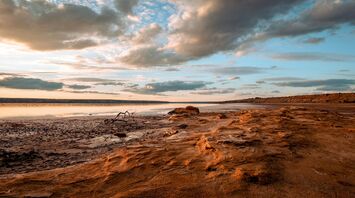Record High Temperatures and Drought: Impact on Tourism in Europe

Europe is facing the consequences of extreme heat and lack of rainfall this summer, significantly affecting both the tourism industry and the energy sector. Countries such as Bosnia and Poland have been particularly hard-hit, where sharp drops in water levels have caused both ecological and economic concerns.
Bosnia: Drying Lakes and a Blow to Tourism
In Bosnia, the heat has caused the drying up of several lakes, a scenario that was previously unimaginable. One of the hardest-hit bodies of water is the Bela Lake, which is typically a source of hydroelectric energy and a popular spot for swimming. This year, water levels reached critically low levels, disrupting both the operation of the hydroelectric plant and tourist activities in the region. The lake, which usually attracted both locals and international tourists for summer recreation, has become unsuitable for swimming, and the country's energy sector has had to adapt to the new conditions.
Poland: Vistula River at Record Low Levels
In Poland, the situation with water bodies is equally alarming. The water level in the Vistula River in Warsaw reached a record low of 24 cm this week, breaking the previous record set nine years ago when it fell to 26 cm. Experts had warned of this scenario due to ongoing heat and the absence of rain. The low water level poses serious challenges for river navigation and threatens the ecosystem, which is negatively impacting the country’s tourism potential, especially as river cruises and riverside attractions are popular among travelers.
For tourists planning to visit these countries, climate changes have become an unexpected factor. Drying lakes and falling water levels in rivers reduce the opportunities for water-based activities, which many visitors often rely on. The tourism industry is being forced to rapidly adjust its offerings, finding alternative ways to attract guests. Environmental issues caused by the heat also raise concerns about the long-term sustainability of several popular tourist destinations.



















